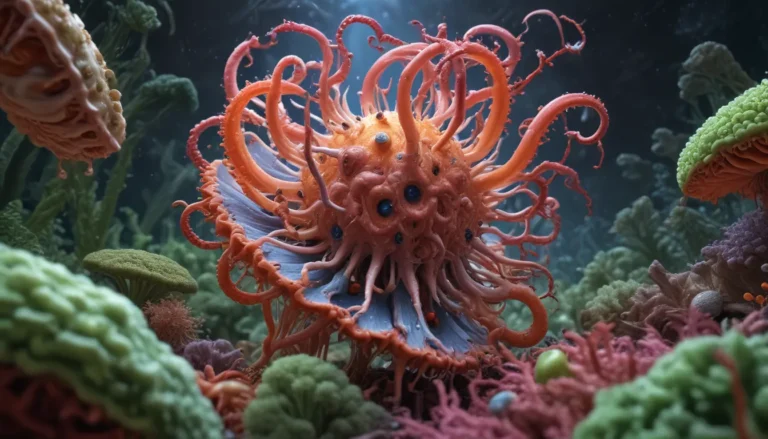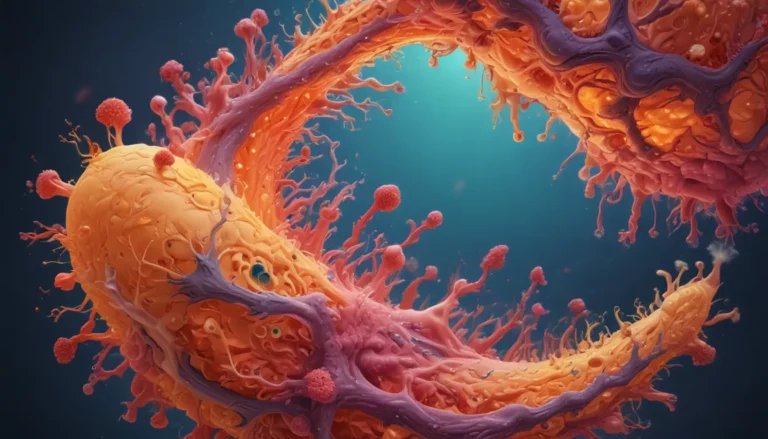A Note About Images: The images used in our articles are for illustration purposes only and may not exactly match the content. They are meant to engage readers, but the text should be relied upon for accurate information.
Pollution is a critical environmental issue that poses a significant threat to the health and well-being of our planet. From harmful substances damaging the air, water, and land to the surprising presence of pollutants in unexpected places, the impact of pollution is widespread and concerning. In this article, we will delve into 15 surprising facts about pollution that will not only educate but also inspire action towards creating a cleaner and healthier environment for all.
Understanding Pollution: Beyond the Basics
Pollution is not just an outdoor problem.
While outdoor air pollution is a well-known issue, indoor pollution can be just as harmful. Common household pollutants such as tobacco smoke, mold, pet dander, and cleaning products can significantly impact our health.
Pollution can affect the brain.
Exposure to high levels of air pollution has been linked to cognitive impairment and developmental delays, particularly in children. Fine particulate matter found in air pollution can reach the brain, causing inflammation and damage to brain cells.
Plastic pollution threatens marine life.
Millions of tons of plastic waste end up in our oceans each year, posing a grave danger to marine animals. Ingesting plastic can lead to suffocation, internal injuries, and even death for marine creatures.
The fashion industry contributes to water pollution.
The production of textiles, including dyeing and printing, releases harmful chemicals into water bodies, contaminating drinking water supplies and disrupting aquatic ecosystems.
Noise pollution can have serious health effects.
Excessive noise can result in hearing loss, elevated blood pressure, and increased stress levels. Long-term exposure to noise pollution has also been linked to heart disease and sleep disturbances.
The Effects of Pollution on Different Ecosystems
Air pollution affects crop yields.
Higher levels of pollutants in the air, such as nitrogen dioxide and ozone, can reduce agricultural productivity by damaging plants and inhibiting crop growth.
Light pollution disrupts ecosystems.
Excessive artificial light at night can interfere with the natural behavior of animals, impacting migration patterns and feeding habits. It can also disrupt human health by affecting sleep patterns and circadian rhythms.
Land pollution can contaminate groundwater.
Improper disposal of hazardous waste and chemicals can contaminate groundwater, a vital drinking water source for many communities, leading to long-term health consequences.
The Far-Reaching Consequences of Pollution
Pollution contributes to climate change.
Emissions from burning fossil fuels and other human activities contribute to the greenhouse effect, resulting in global warming and climate change with wide-ranging implications for ecosystems, weather patterns, and human health.
Pollution disproportionately affects low-income communities.
Many disadvantaged communities, particularly those in urban areas, are disproportionately exposed to pollution from industrial facilities and traffic, leading to higher rates of respiratory diseases and other health issues.
Plastic pollution impacts freshwater ecosystems.
Plastic waste in rivers and lakes can harm aquatic life, disrupt freshwater ecosystems, contaminate drinking water sources, and pose risks to human health.
Pollution can cause skin problems.
Exposure to pollutants in the air, water, and certain chemicals can lead to skin irritation, allergies, and other dermatological conditions.
Noise pollution affects wildlife behavior.
Loud noises from human activities such as construction and traffic can disrupt animal communication, foraging patterns, and mating behaviors.
Pollution contributes to respiratory diseases.
Poor air quality in heavily polluted areas can increase the risk of respiratory illnesses and conditions such as asthma, bronchitis, and lung cancer.
Pollution has economic consequences.
The costs associated with pollution-related healthcare, environmental cleanup, and loss of productivity can place a significant financial burden on communities and governments.
Taking Action Against Pollution
From reducing our carbon footprint to supporting clean energy initiatives, there are numerous ways individuals, communities, and governments can work together to combat pollution and protect our planet. By raising awareness, advocating for sustainable practices, and implementing innovative solutions, we can create a cleaner and safer environment for generations to come.
Conclusion
In conclusion, pollution is a pressing issue that requires immediate attention and concerted efforts from all stakeholders. By understanding the various sources and impacts of pollution, we can take meaningful steps towards minimizing its effects and preserving the health of our planet. Together, we can make a difference in creating a cleaner, healthier environment for all.
FAQs
-
What are the main causes of pollution?
Pollution can be caused by various factors such as industrial emissions, vehicle exhaust, deforestation, improper waste disposal, and agricultural practices. -
How does pollution impact human health?
Pollution can lead to a wide range of health problems including respiratory issues, cardiovascular diseases, allergies, and cancer. -
Is pollution only an outdoor problem?
No, pollution can also occur indoors due to factors like tobacco smoke, household chemicals, mold, and inadequate ventilation. -
What can individuals do to reduce pollution?
Individuals can make a difference by adopting environmentally friendly practices such as conserving energy, recycling, using sustainable transportation options, and supporting clean air and water initiatives. -
Are there technological solutions to combat pollution?
Yes, advancements in technology have led to solutions like renewable energy sources, efficient waste management systems, and pollution control devices that play a crucial role in reducing pollution.
Our commitment to delivering trustworthy and engaging content is at the heart of what we do. Each fact on our site is contributed by real users like you, ensuring diverse insights and information. Trust in our dedication to quality and authenticity as we explore and learn together towards a cleaner, healthier planet.






